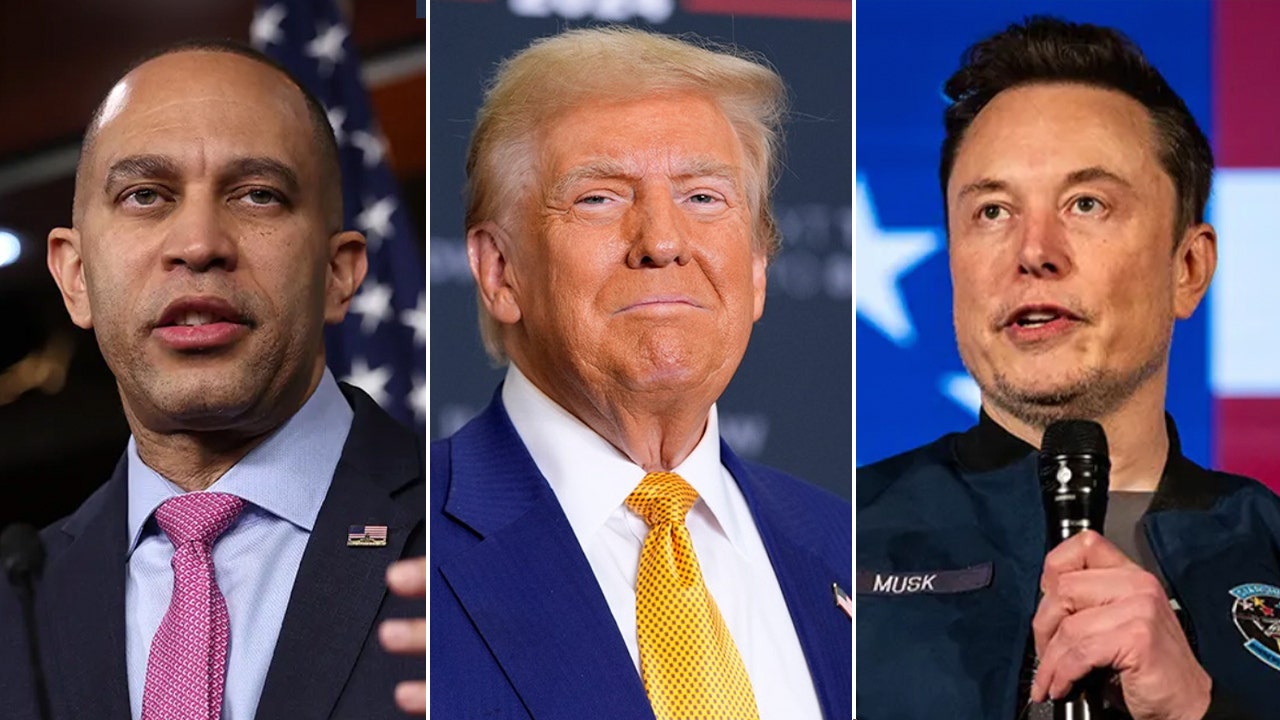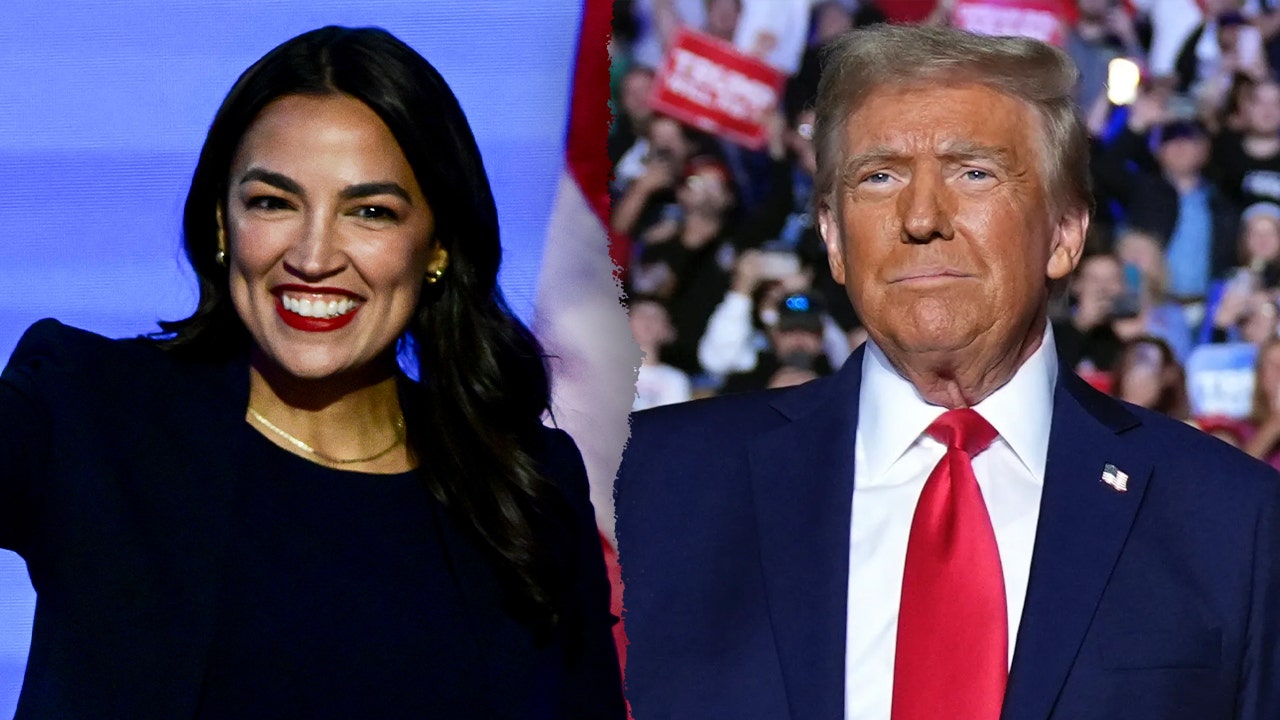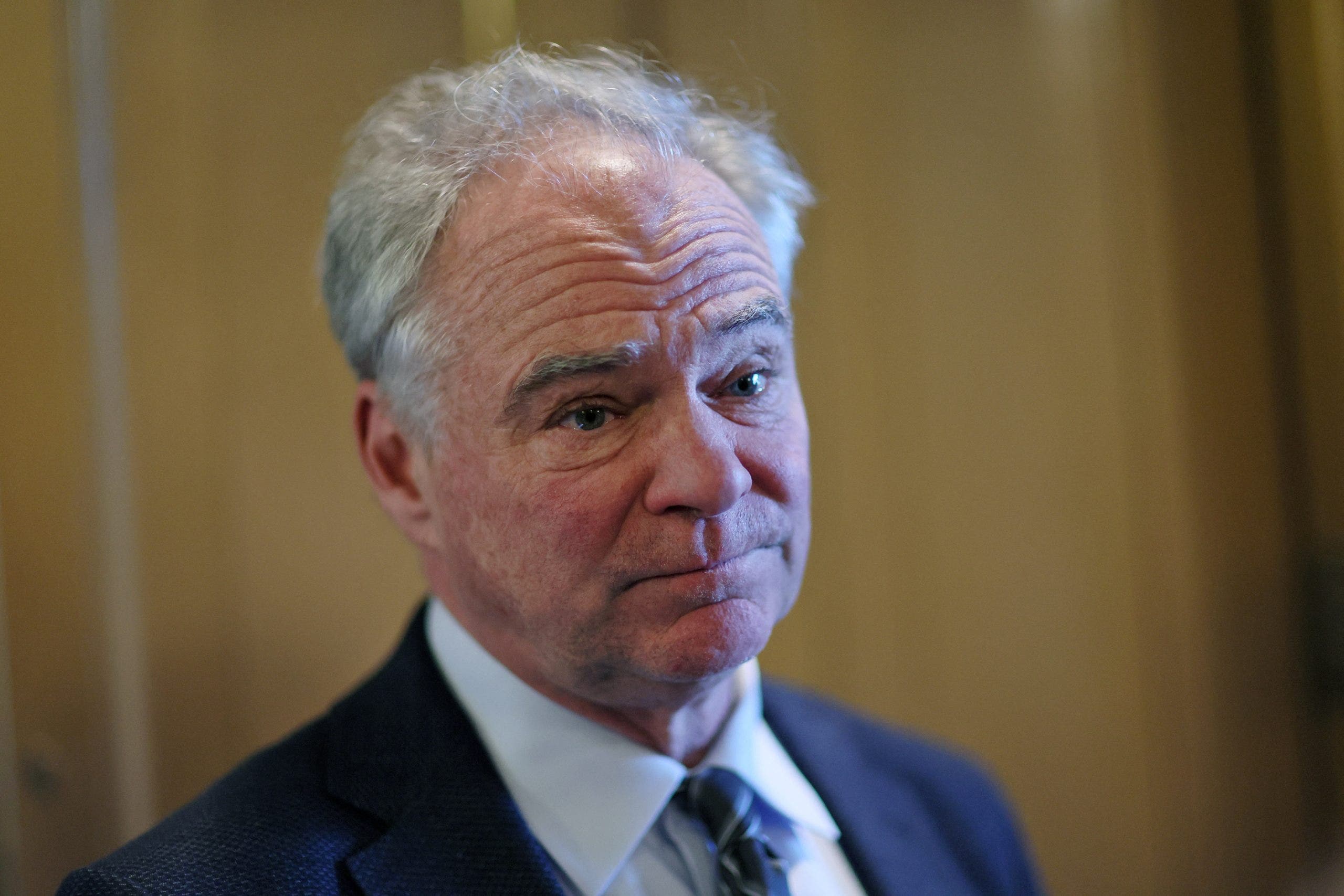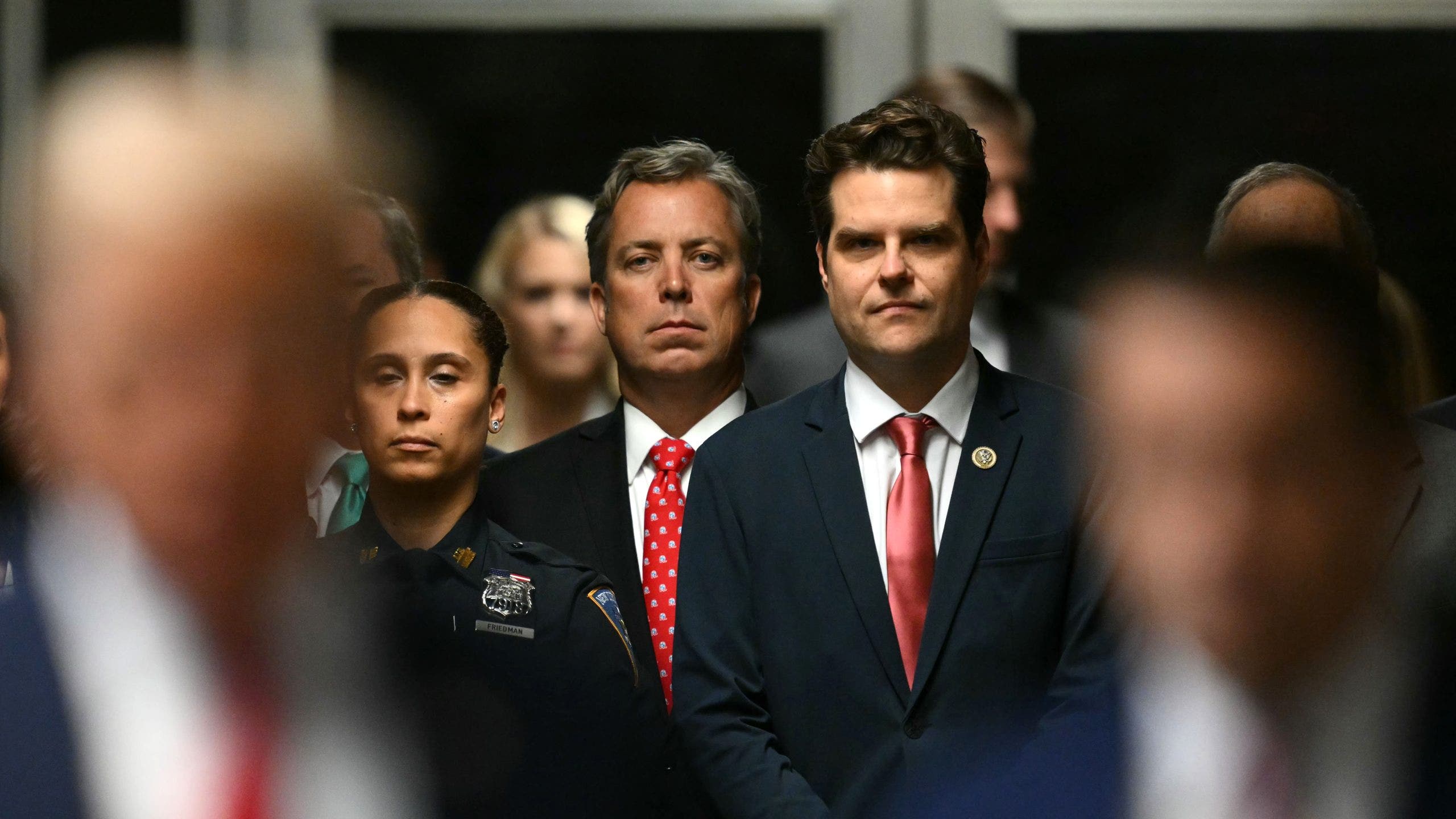Trump, Musk fire back after Jeffries blames House GOP for breaking bipartisan agreement

House Minority Leader Hakeem Jeffries, D-N.Y., delivered a scathing rebuke to House Republicans at the U.S. Capitol in Washington, D.C., accusing them of reneging on a bipartisan agreement to fund the government and avoid a looming shutdown. Jeffries called out the GOP for betraying the American people and causing harm to communities across the nation with their actions.
The initial bipartisan deal to avert a government shutdown this Friday was upended by conservative opposition, leaving House GOP leaders scrambling to find an alternative plan. Jeffries condemned the Republicans for breaking the agreement that had been reached by both parties, emphasizing that the decision would have detrimental effects on everyday Americans.
“House Republicans, along with House Democrats, Senate Republicans, and Senate Democrats, came together in a bipartisan effort to fund the government, keep it operational, and address the needs of the American people,” Jeffries stated. He highlighted that the agreement included provisions for disaster assistance to support individuals impacted by extreme weather events. However, the unilateral decision by House Republicans to backtrack on the agreement was met with strong criticism from Jeffries.
“An agreement is an agreement. It was bipartisan, and there should have been no wavering,” Jeffries asserted. He held the House Republicans accountable for the consequences of their actions, accusing them of disregarding the well-being of working-class Americans whom they claim to represent.
As the national debt continued to soar, reaching over $36 trillion, and with a significant budget deficit recorded in the previous fiscal year, the stakes of the government funding issue were high. Billionaire Elon Musk, appointed by President-elect Trump to serve in the Department of Government Efficiency, also weighed in on the matter, criticizing the lengthy continuing resolution bill and calling out what he perceived as excessive spending.
President-elect Trump expressed vehement opposition to the bill, raising concerns about the looming debt ceiling deadline and the potential political maneuvering surrounding the issue. He vowed to fight against any attempts to pass the bill without addressing the debt ceiling issue, emphasizing the need for a comprehensive resolution to the budgetary challenges facing the country.
The release of the 1,547-page continuing resolution bill drew strong pushback from conservative and House GOP members, who objected to the inclusion of various policy riders and funding allocations. Despite the bill’s potential to avert a government shutdown, the contentious provisions related to health care, ethanol fuel, disaster aid, and infrastructure projects, as well as the proposed pay raise for lawmakers, fueled dissent within the Republican ranks.
In conclusion, the confrontation over government funding highlighted the deep divisions within Congress and the challenges of reaching consensus on critical budgetary issues. Jeffries’ condemnation of the House Republicans underscored the frustration and discord that characterized the debate over the funding bill. As the deadline for a government shutdown loomed, the political wrangling and conflicting priorities threatened to disrupt essential services and programs. The path forward remained uncertain as lawmakers grappled with finding a solution that would meet the needs of the American people while addressing the pressing fiscal challenges facing the nation.




